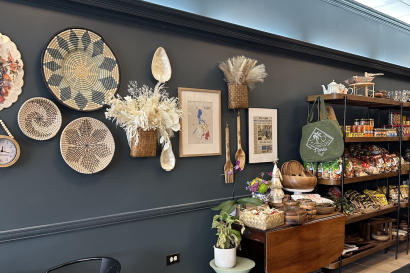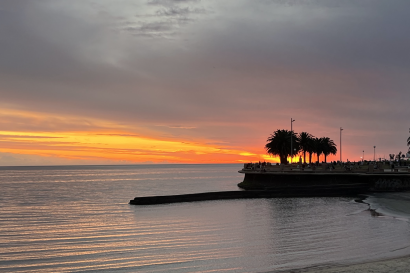One of the key aspects of linguistic and cultural immersion is living with a host family. You hear the language even when you’re at home, and you get to learn more about their cultural practices and beliefs as you interact with them. My host mom loves to share her thoughts, and I decided to ask her a question every now and then—when I had the time to listen—about the Chilean perspective on various topics. I asked about therapy, prisons, healthcare, insurance, and other similarly important issues. The other day, we discussed Pinochet.
We had been lightly discussing downtown Santiago. Salvador Allende and socialism came into the conversation, as they tend to, and then it took a turn I wasn’t expecting.
“My family and I never had a problem with Pinochet.”
I’ve lived with this woman for a while now and thought I knew most of her political stances and general dislikes, but this comment threw me for a loop. Her daughter had a wedding party in Pinochet’s mansion, so I knew they weren’t anti-Pinochet, but her son is socialist so I didn’t think she could be a Pinochetista (supporter of Pinochet). She lived through the dictatorship and was in second, third, and fourth grade under Allende. Curfews, military checkpoints, and scary interactions with the authorities while trying to go on dates while Pinochet was in power were a part of this same conversation. Months later we were talking about her relationship, and she said that she had to marry her then-fiance and move into her mother-in-law’s house—at that point it was an issue of safety.
Many Chileans will say they don’t feel strongly about Pinochet or socialism and later reveal just how strong ‘not feeling strongly’ can be. Last semester, I visited the Villa Grimaldi, which is a very important site from the time of the dictatorship (I wrote a blog about it—go check it out!). After the trip, we were tasked with asking our host families for their thoughts. One of the students recounted how their host mom scoffed and talked about the events that transpired at the Villa being ‘alleged’ and ‘not really the truth’. Our professor told us that many people who support the dictatorship say similar things.
My host mom shared that while she didn’t feel unsafe during those seventeen years, she’s aware that thousands of people did not feel the same.
She told me some conspiracy theories she’d heard, of people smuggling guns in and killing military officers. She acknowledged that thousands were killed, and was clear that she’s not a Pinochetista. The point she was going for was that some of the socialists being targeted weren’t innocent. I replied that the most important point to make is that most were, and that the skewed power dynamic made their lack of ‘innocence’ largely irrelevant.
Villa Grimaldi was a place created to punish socialists and their loved ones. Physical and psychological torture were utilized to stamp out these beliefs. No one deserves that.
The conversation was difficult. I didn’t go through this experience, and I don’t live the direct aftermath every single day. My host mom was lucky enough to not know anyone killed, but I’ve met other Chileans who aren’t a part of that lucky group. Ethics are brought in, and political nuances that even the most dedicated of scholars have trouble grasping are rampant.
The most important conclusion to reach is that even if you weren’t directly affected, it doesn't mean it didn’t happen. Eventually my host mom reached that conclusion on her own.
I suppose the point of this blog is that these conversations may be a bit confusing or uncomfortable, but they're also very valuable and important. I have learned so much from asking these questions, and even when I don't ask a question, she's happy to talk about how low her pension is or how she voted during the election. Talking about these things helps me learn more about Chile, and while many times I take her words with a grain of salt, I am always intrigued to see how she'll answer.

Maggie Peyton
My name is Maggie and I'm from Chicago, Illinois (one of the best cities in the States in my completely unbiased opinion). I'm left-handed, could watch Encanto every day, and I am a huge fan of the singer-songwriter Mitski. I study Public Policy at the University of Illinois in Chicago and am excited to learn more about Santiago. I hope to find a community away from the one I have at home and make Santiago my own.








